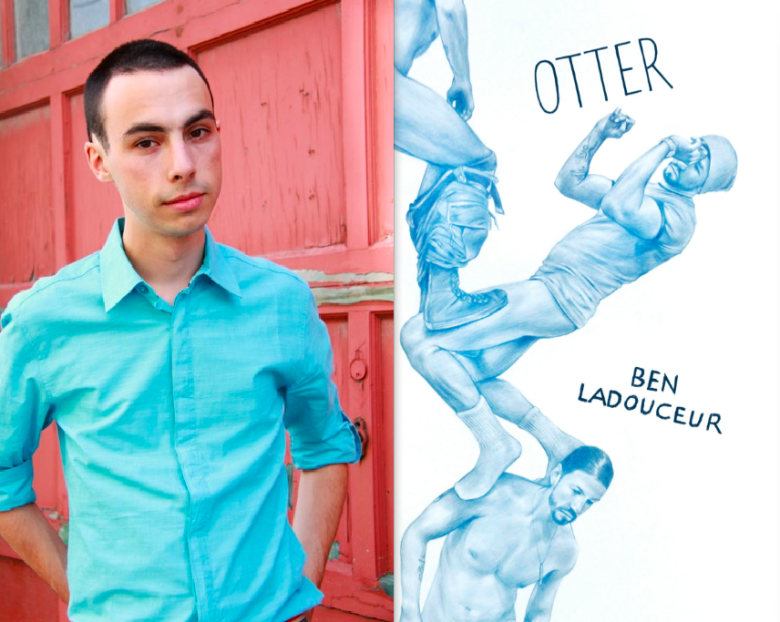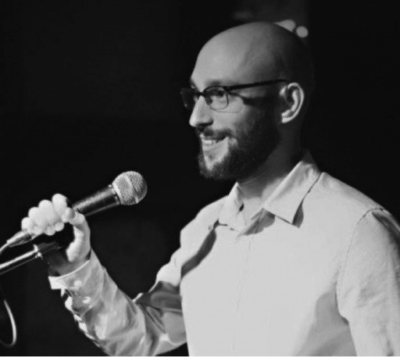Student Storytellers: Creative Writing and the English Department at Carleton University
Despite the fact that the English Department’s Creative Writing Concentration was only formally established in 2011, the English Department at Carleton has a longstanding tradition of encouraging students in their creative-writing efforts. For many years, Carleton’s English Department has offered creative-writing workshops in fiction, non-fiction, poetry, and stage-and-screen writing. Additionally, students have benefited from encounters with faculty members who went out of their way to mentor students and to provide them with unique opportunities for exposing their work within Ottawa’s vibrant literary scene.
Given the richness of the creative-writing curriculum, the numerous opportunities to form networks with fellow writers and literature enthusiasts, and the mentorship provided by a warm and engaged faculty, Carleton’s English Department is the perfect environment for aspiring writers to flourish. The following publications by current students and alumni serve as a testament to Carleton’s creative-writing accomplishments.
Kevin T. Johns, for example, completed a Combined Honours degree in English and Film Studies; he followed up this undergraduate degree with a Master’s in English Literature at Carleton.

Today he is an author, ghostwriter, and writing coach; as he put it, writing is his life on three different fronts. The works under his own name include the YA fiction trilogy The Page Turners, instructional writing manuals such as The Novel Writer’s Blueprint, and children’s picture books such as Rocket Princess vs. Snaggletooth the Dragon. Johns has also co-authored many additional works in his role as ghostwriter for various clients who, he explains, “have ideas to share with the world but who don’t necessarily have the skillset to get them written.” For those people who want to see their ideas bear fruit in their own words but need assistance in completing their writing projects, Johns offers his services as a writing coach. As he explains, “I work one-on-one with writers to help them identify their goals, develop plans for achieving those objectives, and then provide support and accountability as they work towards them. Writing a novel is a long, lonely process and having a coach in your corner to cheer you on, providing tips on the craft of writing, and monitoring progress can be enormously valuable. I find it endlessly rewarding to work with aspiring authors and help them improve their writing, reach their goals, and achieve the success they deserve.”

Johns developed the skills that he parlayed into a career during his studies at Carleton. He still recalls with appreciation the breadth of the literature courses he took as an undergraduate at Carleton. Indeed, Johns was so pleased with his undergraduate experience in the English program that he ignored the common wisdom that one ought to earn one’s degrees at different institutions and decided to remain at Carleton for his MA degree. Johns also speaks highly of the faculty members he encountered during his time at Carleton: “Instructors such as Professors Jodie Medd, Arnd Bohm, and Brian Johnson were all fantastic teachers and mentors throughout my academic career.” One of the most important beliefs that Johns says he took away from his studies at Carleton is that literature matters. “Art isn’t just a part of culture,” he elaborates, “but rather the very substance from which culture is formed. Literary scholars take their work very seriously, and that is as it should be. The respect and rigour with which art is studied in the English program at Carleton inspired me to follow my own artist pursuits and gave me confidence that a writing career is a worthy one.”
Like Johns, Ben Ladouceur completed both his undergraduate and graduate degrees at Carleton. The former, completed between 2005 and 2009, was in English Literature; the latter, completed between 2010 and 2012, was in Canadian Studies. Ladouceur has published a series of poetry chapbooks and a critically acclaimed poetry collection titled Otter. Published by the Toronto publishing firm Coach House Books, the collection was shortlisted for the Lambda Literary Award and the Gerald Lampert Memorial Award. Ladouceur traces his decision to become a poet to his experience at Carleton. Recalling “The Poetry of Witness” course taught by Professor Brenda Vellino and “The Montreal Modernists” seminar taught by Professor Collett Tracey, he notes that “those classes seemed like the only places in the world where I could find human beings who had substantial respect for poetry as a medium.” Ladouceur notes further that Professor Tracey has had a meaningful impact on his life as a writer: “She taught me (and so many others) not to study literature from a distance, but to consider myself an aspiring member of the Canadian literary continuum. I learned from her that a poem might be best responded to not with an essay but with another poem.”

During his time at Carleton, Ladouceur served as an editor of In/Words magazine and participated regularly in the English Literary Society’s Monday night writers’ circles. When the Monday night group grew too crowded, he personally hosted a second writers’ circle on Wednesday evenings. “I enjoyed all of it,” he recalls, “and many of my dearest friends come from that world.” The poetry he produced during this time was shortlisted twice for the English Department’s George Johnston Prize. But the most important lesson Ladouceur claims to have learned during his time at Carleton is the notion that writers are simply people who write. As he explains, “There’s no specific appearance or personality or temperament that writers have in common. The only thing they all do is write. So if you want to be one, you have to do that.”
Another Carleton graduate who is passionate about poetry is Laura Clarke. Clarke completed her Bachelor of Humanities with a Major in English between 2004 and 2008, and like Ladouceur, she considers Professor Brenda Vellino’s poetry courses as having played a key role in her development as a writer. As Clarke recalls, “I was taking a Bachelor of Humanities concurrently, and though I loved learning about Aristotle, Heidegger, and the Bhagavad Gita, I felt an electric pull towards the poetry taught in Professor Vellino’s poetry course. This poetry was modern, diverse and closely engaged with current social and political issues. Professor Vellino not only exposed me to new ideas, but also encouraged me to pursue my own particular interests within the scope of the class.” She felt similarly about Professor Dana Dragunoiu’s fourth-year seminar on Nabokov; she likes to joke that “Her inspiring teaching and breadth of knowledge actually fooled me into thinking for a while that I might also want to be an academic!” About her general experience as an English student at Carleton, Clarke commented, “I was already in love with reading, writing and poetry in particular well before I went to Carleton, but my time there solidified and reshaped that love. I was introduced to so many texts that still resonate with me today and shape the subject matter of my poetry.” Since graduating from Carleton, Clarke has earned a Master’s in English and Creative Writing from the University of Toronto and has made her publishing debut with a collection of poems titled Decline of the Animal Kingdom. Published by ECW Press, the collection provides (to quote a review from The National Post) “nuanced examinations of the relationships between people and animals, domesticity and the wild.” More recently, Clarke has spent time in Texas and Alabama doing research and finding inspiration for her second collection of poems.

Another alumnus of Carleton’s English Department who has done a significant amount of travel for his creative-writing projects is Jesse Thom. After graduating from Carleton in 2006, Thom attended a clown school in Vancouver. His education in a wide range of creative media—literature, music, and the performing arts—provided him with a unique skillset that he has placed into the service of a career as a performance artist.

When studying English Literature at Carleton, Thom enjoyed especially reading and learning about Victorian authors who also specialized in children’s writing, such as Oscar Wilde and Lewis Carroll, and more recent children’s writers such as Shel Silverstein. The whimsical nature of these writers’ works appealed to Thom and served as inspiration for the characters at the heart of Thom’s work as musician, storyteller and puppeteer. In addition to being the founder of Beat Creatures (furry drums for kids), Thom writes children’s books that are at once light-hearted and educational. His most recent endeavours include the heartwarming children’s book Some Bunny Loves You and a debut seven-song album titled Snowdragons. Thom speaks fondly of his time at Carleton; he recalls with affection the warmth and encouragement of faculty and peers he met not only in his courses, but also in poetry clubs and late-night music sessions hosted by Carleton’s Music Department.
Like Thom, Jeremy Hanson-Finger is no stranger to branching out creatively. Hanson-Finger completed his BA with a Combined Honours in English and Communications in 2009 and an MA in English a year later. One of his favourite aspects of his English degree is the wide range of critical and theoretical approaches he encountered in his courses. At the time, he admits, he was under the impression that most programs offered such a breadth of perspectives, but after speaking with students at other universities he discovered otherwise. He recalls being intellectually invigorated by the theory courses he took with Professors Brian Johnson and Rob Holton as well as the creative-writing workshops he took with Professor Armand Ruffo and Carleton’s 2007 Writer-in-Residence Ivan Coyote. He remembers with special vividness an insight shared with the class by Coyote: paraphrasing an unknown author, Coyote told the class that “in the same manner as leaving your tap running to flush out rusty water, you should write until it runs clear.”

During his time at Carleton, Hanson-Finger won the George Johnston Prize in 2009. This led to the inclusion of his prize-winning poem in Susan McMaster’s anthology Pith & Wry: Canadian Poetry, a collection of poetry that also featured the work of Margaret Atwood. Since completing his studies, Hanson-Finger has written two long essays for the online journal Puritan and a short story titled “Microcosm” for the online magazine Joyland. He also served as co-editor of the online literary magazine Dragnet. As a technical writer at Shopify, he considers the writing and editing skills he acquired at Carleton as key assets. He is also in the process of putting the final touches on a novel provisionally titled Death and the Intern. Scheduled to be released by Invisible Press in the spring of 2017, the novel takes place in Ottawa and is in equal parts hospital drama and hardboiled fiction.
Though only in her fourth year of study as an English major at Carleton, Sanita Fejzić is already an accomplished writer. Her novella Psychomachia has been shortlisted for the 2015 Ken Klonsky novella prize and is under contract with Quattro Books. Additionally, she has a short story forthcoming in The Antigonish Review and has published a poem in The Steel Chisel. Fejzić describes her time at Carleton enthusiastically: “I have grown, I have blossomed and I can smell the perfume of literary success,” she observes optimistically. A member of the newly established Creative Writing Concentration, Fejzić has taken all of the creative writing workshops offered by the English department and found them to be very instructive: “The workshops were a place for exploration, experimentation and personal development.” She has high praise for the workshops led by writers Nadia Bozak, Mark Frutkin and Rick Taylor especially, noting that each of these instructors created a unique classroom atmosphere and rich learning trajectory.
Like Ladouceur before her, Fejzić serves as co-editor of In/Words magazine, where she says she has learned a lot about publishing. Together with her co-editors Jenny Greenberg, Geoff Bates, and Drew Douglas, Fejzić has launched a number of chapbooks and will also be launching In/Words’ first-ever themed edition in collaboration with Lisa Rochefort, editor of Arc Poetry magazine. Fejzić takes a very practical approach to writing, explaining that for her writing has to be worked at on a daily basis and is not a process to be romanticized to the point of allowing for writer’s block to slow down one’s productivity. “Finding the right words is supposed to be a struggle, but this can be experienced in a positive light,” she explains, “I suppose that what I’m trying to say is that writing must become a habit before it can become art.”
